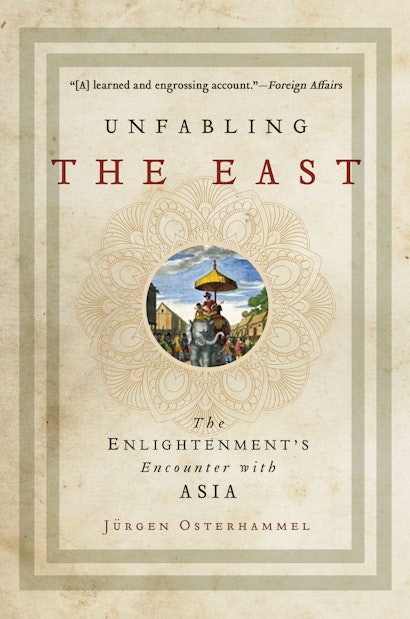Unfabling the East: The Enlightenment's Encounter with Asia

Hardcover
Paperback
- Price:
- $27.95/£22.00
- ISBN:
- Published:
- Nov 19, 2019
- Pages:
- 696
- Size:
- 6.13 x 9.25 in.
- Main_subject:
- History
ebook
Audio
During the long eighteenth century, Europe’s travelers, scholars, and intellectuals looked to Asia in a spirit of puzzlement, irony, and openness. In this panoramic book, Jürgen Osterhammel tells the story of the European Enlightenment’s nuanced encounter with the great civilizations of the East, from the Ottoman Empire and India to China and Japan. He shows how major figures such as Leibniz, Voltaire, and Gibbon took a keen interest in Asian culture and challenges the notion that Europe’s formative engagement with the non-European world was invariably marred by an imperial gaze and presumptions of Western superiority. A momentous work by one of Europe’s most eminent historians, Unfabling the East brings the sights and sounds of this tumultuous age vividly to life. It takes readers on a thrilling voyage to the farthest shores, bringing back vital insights for our own multicultural age.
